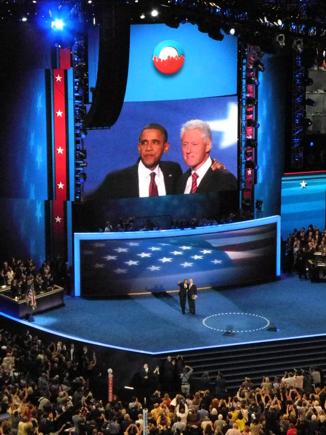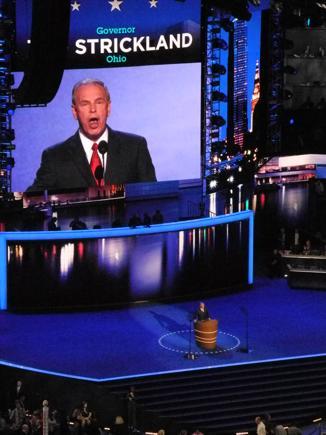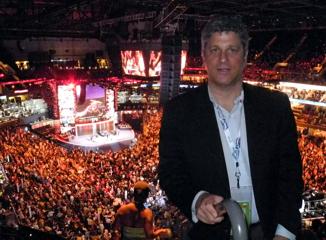“Backing Barack”
The US President wins some heavyweight economic support as Reuben Guttman sees the curtain rise on the International Bar Association’s annual gathering in Dublin, Ireland. See Reuben Guttman’s October 1, 2012 blog in The European Lawyer.
The International Bar Association opened its annual convention with keynote speaker and Nobel Prize winning economics professor Joseph Stiglitz announcing his support for the re-election of US President Barack Obama.
Speaking before several thousand attorneys from across the globe, Prof Stieglitz called for additional regulation of the banking and financial services sectors. ‘The first fiscal stimulus worked but it was too small,’ he told delegates. ‘We need another; we cannot afford not to do another stimulus.’
No choice
Prof Stiglitz’s support for Obama came as a surprise response to a question from a British lawyer. ‘Clearly Obama is better,’ he said. ‘When compared to the alternative there is no choice.’ But Prof Stiglitz also said that Mr Obama could have done ‘more with the restructuring of home mortgages’.
The Nobel Prize winner went on to compare the conduct of the banks to gambling, which is why ‘regulation is so important’.
A recent New York Times comment article — co-authored by Prof Stiglitz and economist Mark Zandi — noted that the president’s housing policies have ‘fallen short’ but that ‘Mitt Romney hasn’t offered any meaningful new proposals to aid distressed or underwater homeowners’.
Here in Dublin, when pressed, he made his ultimate political choice clear.
Political gridlock
While Prof Stiglitz urged more regulation, he expressed concern that political gridlock may preclude timely government intervention. ‘People say they believe in free markets but one person’s freedom is the right not to be injured by others,’ said Prof Stiglitz.
He continued by commenting that the ‘disparity in income brought about by the economic crisis means that there will be a disparity in political clout’. And he urged IBA members to respond by making sure that there will always be access to justice for those without the economic means.
It was a particularly intriguing observation given the controversy caused by the US Supreme Court’s 2010 ruling in Citizens United v Federal Elections Commission, which expanded the rights of corporations to make independent expenditures to influence the outcome of federal elections. The 2012 election marks the first test of that judgment on a US presidential race.
http://www.globallegalpost.com/blogs/commentary/backing-barack-91190962/

 CHARLOTTE, NC — Twenty-eight years ago, then New York Governor Mario Cuomo gave a keynote address to the Democratic National Convention in San Francisco with a speech that will be remembered for the ages. But that speech, which focused on the demise of an industrial economy, was built on passion and emotion.
CHARLOTTE, NC — Twenty-eight years ago, then New York Governor Mario Cuomo gave a keynote address to the Democratic National Convention in San Francisco with a speech that will be remembered for the ages. But that speech, which focused on the demise of an industrial economy, was built on passion and emotion. CHARLOTTE, NC — Inside the Democratic National Convention here it is all about winning voters in the State of Ohio. Democratic strategists now believe that if President Obama does not carry the State of Florida, Ohio is a must-win state. While Democratic leaders are guardedly optimistic about Obama’s chances in this rust belt state, they are taking no chances.
CHARLOTTE, NC — Inside the Democratic National Convention here it is all about winning voters in the State of Ohio. Democratic strategists now believe that if President Obama does not carry the State of Florida, Ohio is a must-win state. While Democratic leaders are guardedly optimistic about Obama’s chances in this rust belt state, they are taking no chances. CHARLOTTE, NC — Inside the
CHARLOTTE, NC — Inside the